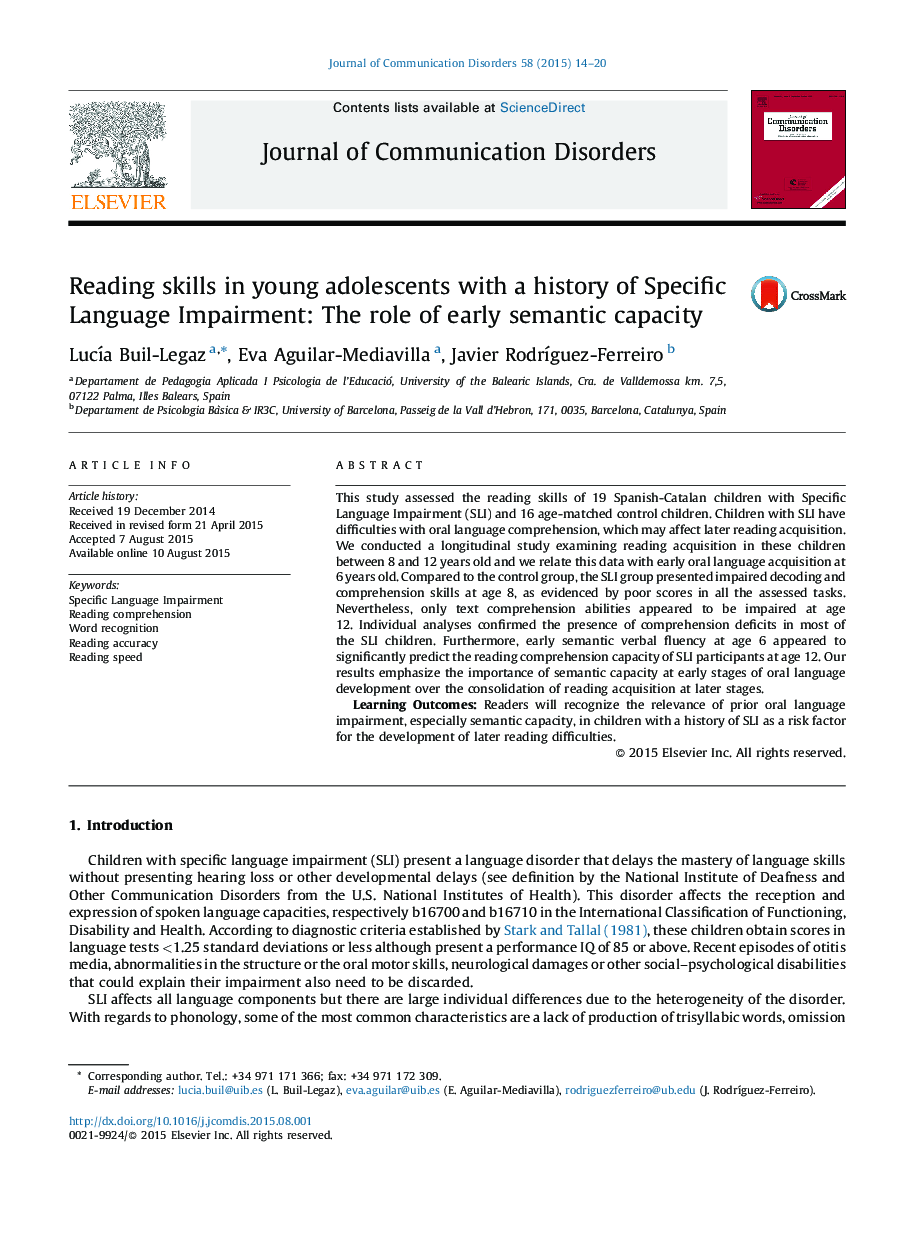| Article ID | Journal | Published Year | Pages | File Type |
|---|---|---|---|---|
| 910752 | Journal of Communication Disorders | 2015 | 7 Pages |
•We assessed reading capacity in children with Specific Language Impairment at ages 8 and 12.•Performance in decoding and comprehension subdomains was also explored.•Oral language development at age 6 predicted later reading capacity.•We studied individual differences in order to better understand deficits in reading subprocesses.
This study assessed the reading skills of 19 Spanish-Catalan children with Specific Language Impairment (SLI) and 16 age-matched control children. Children with SLI have difficulties with oral language comprehension, which may affect later reading acquisition. We conducted a longitudinal study examining reading acquisition in these children between 8 and 12 years old and we relate this data with early oral language acquisition at 6 years old. Compared to the control group, the SLI group presented impaired decoding and comprehension skills at age 8, as evidenced by poor scores in all the assessed tasks. Nevertheless, only text comprehension abilities appeared to be impaired at age 12. Individual analyses confirmed the presence of comprehension deficits in most of the SLI children. Furthermore, early semantic verbal fluency at age 6 appeared to significantly predict the reading comprehension capacity of SLI participants at age 12. Our results emphasize the importance of semantic capacity at early stages of oral language development over the consolidation of reading acquisition at later stages.Learning Outcomes: Readers will recognize the relevance of prior oral language impairment, especially semantic capacity, in children with a history of SLI as a risk factor for the development of later reading difficulties.
